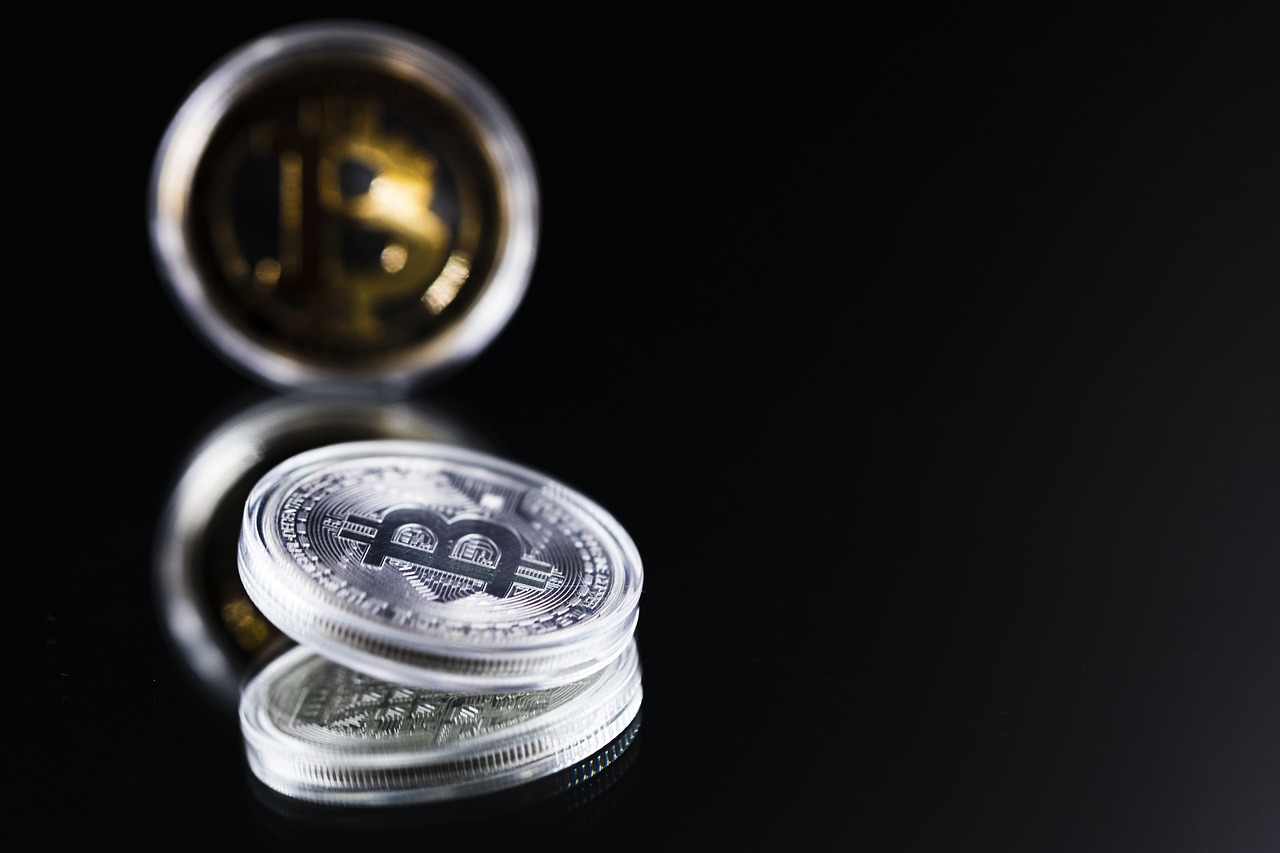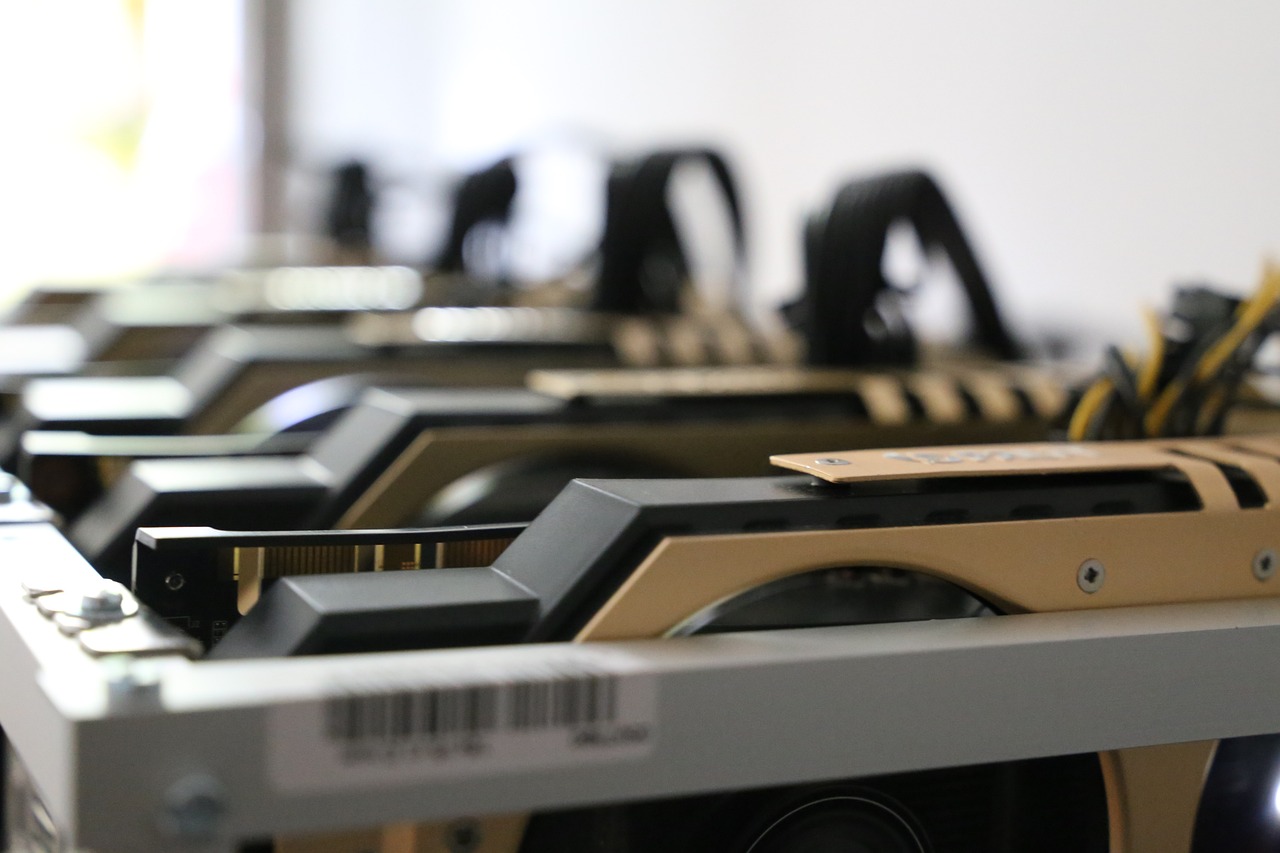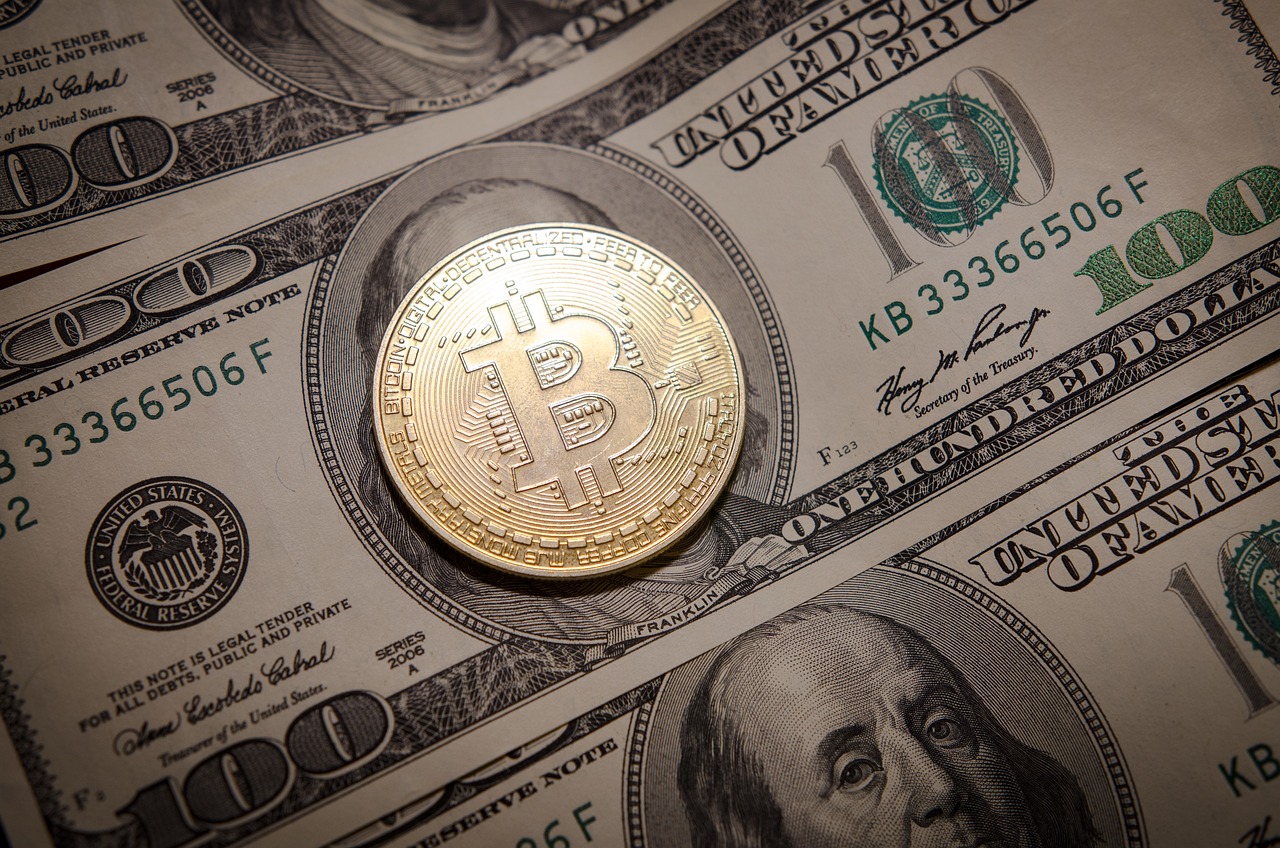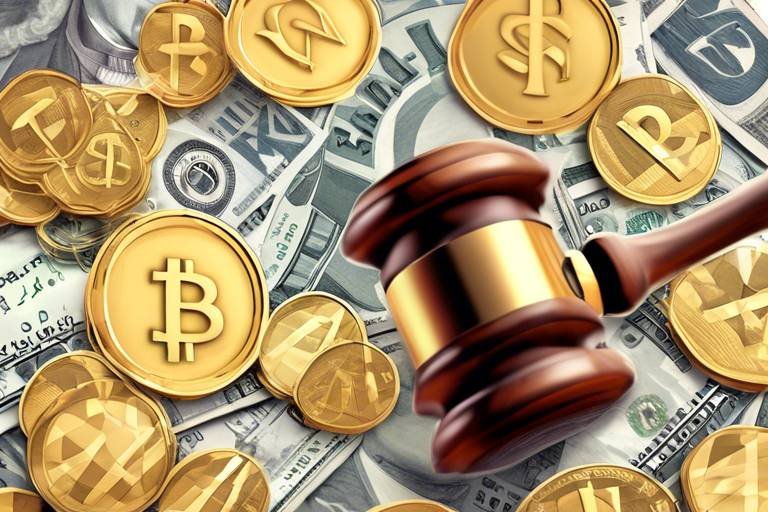Understanding the Legal Risks of Using Crypto for Gaming
The rise of cryptocurrencies has transformed various industries, and gaming is no exception. As more developers and players embrace digital currencies, understanding the legal landscape surrounding their use becomes increasingly crucial. With the potential for significant rewards comes a host of legal risks that both developers and players must navigate. This article delves into the complexities of using cryptocurrencies in gaming, highlighting potential pitfalls, regulatory frameworks, and consumer protection issues that can arise.
Different countries have adopted varying regulations regarding the use of cryptocurrencies in gaming. For instance, while some nations embrace digital currencies and create favorable environments for their use, others impose strict restrictions or outright bans. Developers need to familiarize themselves with these frameworks to ensure compliance and avoid legal pitfalls. The consequences of ignoring local laws can be dire, ranging from hefty fines to the shutdown of gaming platforms.
Here are a few examples of how different regions approach crypto regulations in gaming:
| Region | Regulation Type | Details |
|---|---|---|
| United States | State-Specific | Regulations vary widely; some states are friendly to crypto, while others impose strict regulations. |
| European Union | MiCA Proposal | Proposed regulations aim to create a comprehensive framework for crypto assets. |
| China | Ban | Strictly prohibits all cryptocurrency transactions, impacting gaming developers significantly. |
Consumer protection laws play a vital role in the gaming industry, especially when it comes to the integration of cryptocurrencies. These laws are designed to safeguard players from unfair practices, ensuring that they have a fair experience. However, the incorporation of digital currencies adds layers of complexity. For example, if a player loses money due to a fraudulent scheme or a malfunctioning game, determining liability can be challenging. Developers must ensure that their platforms comply with consumer protection regulations to foster trust and transparency.
With the increasing popularity of crypto in gaming, there has been a noticeable uptick in fraudulent schemes. Scammers prey on unsuspecting players, offering enticing deals that often lead to financial loss. Common scams include fake initial coin offerings (ICOs) for games, phishing attacks, and Ponzi schemes disguised as gaming platforms. Players need to stay vigilant and educate themselves about these threats to protect their investments.
Awareness of warning signs is essential for gamers. Here are some red flags to watch out for:
- Promises of guaranteed returns on investments.
- Unverified or anonymous developers.
- Pressure to invest quickly without adequate information.
- Suspiciously low prices for in-game assets.
Knowing how to report fraudulent activities can help protect the gaming community. If players encounter scams, they should take the following steps:
- Document all relevant information, including screenshots and transaction details.
- Report the scam to the platform or game developer.
- Notify local authorities or consumer protection agencies.
- Share experiences on forums to warn others.
The intersection of crypto and gaming raises unique intellectual property issues. As developers create games that utilize blockchain technology, they must navigate copyright and trademark laws carefully. For example, if a game incorporates non-fungible tokens (NFTs), developers need to ensure that they own the rights to the digital assets used in their games. Failing to do so can lead to legal disputes that not only cost money but can also damage a developer's reputation.
Using cryptocurrencies in gaming can have significant tax consequences. Players and developers alike must understand how transactions might be taxed. For instance, in many jurisdictions, trading or selling in-game assets for cryptocurrency can trigger capital gains taxes. This means that players could owe taxes on profits made from selling virtual items, even if they didn't convert the crypto back to fiat currency.
Understanding tax obligations is essential for compliance. Players and developers should keep detailed records of all transactions involving cryptocurrencies. This includes not only sales but also purchases and trades. Failure to report these transactions can lead to audits and penalties, which can be financially devastating.
On the flip side, there may be potential tax benefits for developers and players. Certain expenses related to crypto gaming activities, such as transaction fees or costs associated with acquiring digital assets, might be deductible. Consulting with a tax professional who understands the nuances of cryptocurrency can help individuals maximize their benefits while staying compliant with the law.
Q: Is it legal to use cryptocurrency in gaming?
A: The legality varies by country. It's crucial to research local regulations.
Q: How can I protect myself from crypto scams in gaming?
A: Stay informed about common scams, and be cautious of offers that seem too good to be true.
Q: Do I need to pay taxes on in-game cryptocurrency transactions?
A: Yes, in many jurisdictions, these transactions can trigger tax obligations.

Regulatory Frameworks
When it comes to the world of cryptocurrencies and gaming, one of the most critical aspects to consider is the that different countries have put in place. These regulations can vary significantly from one nation to another, and understanding them is essential for both developers and players. Imagine trying to play a game without knowing the rules—it's chaotic and can lead to serious consequences. In the same way, navigating the crypto gaming landscape without a grasp on local regulations can lead to legal pitfalls that could derail a promising project or even put players at risk.
For developers, compliance isn't just a box to check; it's a vital part of their business model. Many countries classify cryptocurrencies as assets, while others see them as currencies. This distinction can affect everything from how a game is marketed to the tax obligations that come with in-game purchases. For instance, in the United States, the Internal Revenue Service (IRS) treats cryptocurrencies as property, meaning developers must adhere to specific tax regulations when users buy, sell, or trade in-game assets. Conversely, in countries like Germany, cryptocurrencies can be treated more favorably, offering different tax implications that could benefit developers.
Moreover, the European Union is working towards a more unified approach with regulations like the Markets in Crypto-Assets (MiCA) framework. This could standardize how cryptocurrencies are treated across member states, making it easier for developers to operate within the EU. However, the process is ongoing, and developers must stay updated on the evolving landscape. It's like trying to catch a moving train; if you're not paying attention, you might miss your stop.
Players also need to be aware of the regulatory environment, as it directly impacts their gaming experience. For instance, in some jurisdictions, using cryptocurrencies for in-game purchases could be considered illegal gambling. This can lead to account bans or even legal repercussions for players. Understanding whether a game complies with local laws is crucial for players who want to enjoy their gaming experience without facing unexpected consequences.
To illustrate the complexity of the regulatory landscape, consider the following table that summarizes how different regions approach cryptocurrency in gaming:
| Region | Cryptocurrency Classification | Key Regulations |
|---|---|---|
| United States | Property | IRS Guidelines, SEC Regulations |
| European Union | Asset (under MiCA) | MiCA Framework, GDPR Compliance |
| Germany | Currency | Crypto Tax Exemptions |
| Japan | Currency | Payment Services Act |
In summary, the regulatory frameworks surrounding cryptocurrency in gaming are as diverse as the games themselves. Developers must stay informed and adaptable, while players should always be cautious and informed about the legal implications of their gaming habits. The landscape is continually evolving, and what may be permissible today could change tomorrow. So, whether you're a developer or a player, keeping your finger on the pulse of these regulations is not just smart—it's essential.

Consumer Protection Issues
In the rapidly evolving world of gaming, the integration of cryptocurrencies has opened up a plethora of opportunities, but it has also introduced a myriad of . As players venture into this new territory, understanding their rights and the potential risks is crucial. The gaming industry is already heavily regulated, and when you throw crypto into the mix, the legal landscape becomes even more complex. Developers must navigate these waters carefully to ensure they are compliant with consumer protection laws, while players need to be aware of their rights and the potential pitfalls associated with crypto gaming.
Consumer protection laws are designed to safeguard players against unfair practices, fraud, and exploitation. In the context of crypto gaming, these laws can be particularly challenging to enforce due to the decentralized nature of cryptocurrencies and the often-anonymous identities of players and developers. This lack of transparency can lead to a variety of issues, including misleading advertising, unfair terms and conditions, and data privacy concerns.
For instance, many games promise rewards in the form of cryptocurrency, but players may find themselves trapped in a web of complex terms that they didn’t fully understand. Imagine walking into a casino where the rules change every time you place a bet—this is how many players feel when they engage with crypto gaming platforms. Therefore, it is essential for developers to create clear and accessible terms of service, ensuring that players are fully informed about what they are signing up for.
Additionally, the rise of crypto has unfortunately led to an increase in fraudulent schemes targeting unsuspecting gamers. Players must be vigilant and understand that not all crypto gaming platforms are legitimate. The allure of quick profits can sometimes cloud judgment, leading to poor decision-making. It’s vital for both players and developers to foster a culture of transparency and trust, ensuring that everyone involved is protected from potential scams.
With the surge in popularity of cryptocurrency in gaming, we’ve also seen a spike in fraudulent activities. Scammers are increasingly targeting gamers, luring them in with promises of high returns or exclusive in-game items that can be purchased with crypto. These scams can take various forms, including phishing attacks, Ponzi schemes, and fake initial coin offerings (ICOs). Players should be aware of these tactics and remain skeptical of offers that seem too good to be true.
Awareness of warning signs is essential for gamers. Here are some common red flags to watch out for:
- Unrealistic Promises: If it sounds too good to be true, it probably is.
- Lack of Transparency: Legitimate platforms will provide clear information about their operations.
- Pressure Tactics: Scammers often rush individuals into making quick decisions.
Knowing how to report fraudulent activities can help protect the gaming community. If players encounter scams, they should take the following steps:
- Document all communications and transactions related to the scam.
- Report the incident to the platform where the scam occurred.
- Notify local authorities and consider filing a complaint with consumer protection agencies.
By taking these steps, players can contribute to a safer gaming environment for everyone. Developers, on the other hand, must prioritize building secure platforms and implementing robust consumer protection measures to maintain trust within the community.

Fraud and Scams
The rise of cryptocurrencies in the gaming world has opened up a whole new realm of opportunities, but it has also paved the way for a surge in fraudulent schemes and scams. As a player, you might feel like you’re navigating a digital gold rush, but beware—the glittering allure of crypto can sometimes hide a dark underbelly. From fake games promising unbelievable returns to phishing scams that aim to steal your hard-earned coins, the risks are real and ever-present.
One of the most common scams in the crypto gaming space is the fake Initial Coin Offering (ICO). Scammers create a shiny new game with a flashy website and promise investors astronomical returns. However, once they collect enough funds, they vanish into thin air, leaving players with nothing but empty wallets and broken dreams. It’s like being lured into a mirage in the desert—what seems like a refreshing oasis is nothing but a trap.
Another prevalent issue is phishing attacks. These can occur via email or social media, where scammers impersonate legitimate gaming platforms to steal your login credentials. Imagine receiving a message that looks exactly like it’s from your favorite game, urging you to reset your password. If you fall for it, you might as well hand over your crypto stash on a silver platter! To protect yourself, always double-check URLs and be skeptical of unsolicited messages.
Let’s not forget about the fake gaming platforms. These are websites that mimic legitimate games but are designed solely to siphon off your money. They might offer enticing bonuses or exclusive in-game items, but once you deposit your crypto, you’ll find it’s nearly impossible to withdraw. This is where the importance of doing thorough research comes in—check reviews, seek out community feedback, and always play it safe.
So how can players protect themselves from these potential pitfalls? Here are some red flags to watch out for:
- Unrealistic promises of high returns or rewards.
- Websites that lack transparency about their team or business model.
- Pressure tactics urging you to invest quickly.
- Spelling or grammatical errors on official communications.
By staying vigilant and informed, you can significantly reduce your chances of falling victim to these scams. Remember, if something sounds too good to be true, it probably is!
In the unfortunate event that you do encounter fraud, knowing how to report it is crucial. Most gaming platforms have dedicated support teams for handling fraud reports. You can also report scams to regulatory bodies or consumer protection agencies in your country. Taking action not only helps protect yourself but also contributes to a safer gaming environment for everyone.

Identifying Red Flags
In the ever-evolving world of crypto gaming, being vigilant is your best defense against potential scams and fraudulent schemes. Just like a seasoned detective, you need to sharpen your skills in recognizing the subtle signs that something might be amiss. The crypto space can be a wild west, and while it offers exciting opportunities, it also harbors risks that can catch even the most experienced players off guard.
One of the primary red flags to watch out for is unrealistic promises. If a game or platform is boasting about guaranteed returns or astonishing profits, it's time to tread carefully. Remember, if it sounds too good to be true, it probably is! Additionally, lack of transparency is another major warning sign. If you can't find clear information about the game's developers, their track record, or the technology behind the platform, you should be skeptical. Legitimate projects usually provide detailed whitepapers and have an active community that can vouch for their credibility.
Another critical aspect to consider is the payment methods being offered. If a game requires you to pay exclusively in obscure cryptocurrencies or through untraceable channels, it’s a strong indication that something isn't right. Furthermore, be cautious of platforms that pressure you into making quick decisions or investments. High-pressure tactics are a classic hallmark of scams, aiming to rush you before you have a chance to think critically.
Here are some specific red flags to keep an eye on:
- Promises of guaranteed returns or profits.
- Lack of transparency about the developers and their backgrounds.
- Pressure tactics urging you to invest quickly.
- Exclusive payment methods that are hard to trace.
- Overly complex or confusing terms and conditions.
By staying alert and informed, you can significantly reduce your chances of falling victim to scams in the crypto gaming world. Always remember that due diligence is your best friend. Take the time to research and verify the legitimacy of any game or platform before diving in. In this digital age, knowledge is power, and being proactive can save you from costly mistakes.

Reporting Fraud
In the fast-paced world of crypto gaming, where excitement meets the thrill of digital currencies, the unfortunate reality is that fraud can lurk around every corner. If you find yourself the victim of a scam, it’s crucial to know how to report it effectively to protect not only yourself but also the broader gaming community. First and foremost, always document everything related to the fraudulent activity. This includes screenshots of transactions, messages exchanged with the scammer, and any other evidence that could support your claim.
Once you have gathered your evidence, the next step is to report the fraud to the platform where the scam occurred. Most reputable gaming platforms have dedicated support teams that can assist you in addressing fraudulent activities. Look for a “Report” or “Help” section on their website. Additionally, if the fraud involved a cryptocurrency transaction, it’s advisable to report the incident to the cryptocurrency exchange you used. They may have measures in place to track down the scammer and possibly recover your funds.
Moreover, reporting to local authorities can be a vital step. In many countries, cybercrime units specialize in handling fraud cases related to digital currencies. By filing a report with them, you not only increase the chances of your case being resolved but also contribute to a larger effort to combat fraud in the crypto space. Here’s a quick checklist of steps to follow:
- Document Evidence: Collect all relevant information and evidence.
- Contact the Platform: Report the scam to the gaming platform.
- Inform the Exchange: Notify the cryptocurrency exchange used in the transaction.
- File a Police Report: Reach out to local law enforcement or cybercrime units.
Lastly, consider sharing your experience in online forums or social media groups dedicated to crypto gaming. Your story could serve as a warning to others and help build a community that is more vigilant against fraud. Remember, while the crypto gaming world is filled with opportunities, it’s essential to stay alert and proactive in reporting any suspicious activities. Together, we can create a safer gaming environment for everyone.
Q: What should I do if I suspect a scam?
A: If you suspect a scam, document all evidence and report it to the gaming platform and cryptocurrency exchange involved. Additionally, consider filing a report with local authorities.
Q: Can I recover my funds after being scammed?
A: Recovery of funds is not guaranteed, but reporting the incident to the relevant platforms and authorities increases the chances of tracking down the scammer.
Q: How can I protect myself from fraud in crypto gaming?
A: Stay informed about common scams, verify the legitimacy of platforms before engaging, and always use secure payment methods.

Intellectual Property Challenges
The fusion of cryptocurrency and gaming has sparked a myriad of opportunities, but it has also opened up a Pandora's box of intellectual property (IP) challenges that developers and players must navigate. As the gaming landscape evolves, so too does the complexity of protecting creative works in this digital realm. With the rise of blockchain technology, the way we think about ownership and copyright is changing rapidly. Imagine creating a game where players can trade unique in-game assets like skins or characters as NFTs (Non-Fungible Tokens). Sounds exciting, right? But what happens if someone copies your design and sells it without your permission? This is where the waters get murky.
Copyright laws are designed to protect creators, but the application of these laws in the crypto gaming space is still developing. For instance, if a game developer creates a unique character that becomes popular, they may find themselves facing challenges in enforcing their copyright against unauthorized reproductions. Moreover, the decentralized nature of blockchain makes it even harder to track and enforce these rights. Developers might feel like they're playing a game where the rules are constantly changing, and the opponents are elusive.
Additionally, trademark issues arise when it comes to branding in the crypto gaming world. Developers must ensure that their game titles, logos, and other brand elements do not infringe on existing trademarks. This requires thorough research and, in some cases, legal counsel to avoid potential lawsuits. Imagine launching a game only to receive a cease and desist letter because another company claims your title is too similar to theirs. It's a nightmare scenario that can derail a project and lead to significant financial losses.
To further complicate matters, the rise of user-generated content in games means that players can create and share their own assets, which raises questions about ownership. If a player designs a unique skin for a character, who owns that creation? Is it the player, the game developer, or does it fall into a legal gray area? Developers need to establish clear policies regarding user-generated content to avoid potential disputes. In this new digital playground, understanding IP rights is not just a good idea—it's essential.
| Intellectual Property Aspect | Challenges | Potential Solutions |
|---|---|---|
| Copyright | Enforcement against unauthorized reproductions | Implementing clear licensing agreements |
| Trademarks | Risk of infringement on existing trademarks | Conducting thorough trademark searches |
| User-Generated Content | Ambiguity in ownership | Establishing clear policies and agreements |
As the gaming industry continues to embrace cryptocurrency, it is imperative for developers to stay informed about the evolving IP laws and regulations. This is not just a matter of legal compliance; it's about protecting creativity and innovation in a space that thrives on originality. By understanding these challenges and implementing proactive measures, developers can safeguard their creations and foster a vibrant gaming ecosystem.
- What are the main intellectual property concerns in crypto gaming? The main concerns include copyright infringement, trademark issues, and ownership of user-generated content.
- How can developers protect their intellectual property? Developers can protect their IP by implementing licensing agreements, conducting trademark searches, and establishing clear policies for user-generated content.
- What should players know about intellectual property in crypto gaming? Players should be aware of the potential risks of using unlicensed content and the importance of respecting the IP rights of developers.

Tax Implications
When it comes to the world of gaming, the integration of cryptocurrencies has opened up a myriad of possibilities. However, with these opportunities come significant that both developers and players need to be aware of. Understanding how your crypto transactions will be taxed is not just a matter of compliance; it’s crucial for effective financial planning. For instance, many players are unaware that the gains they make from trading in-game items for cryptocurrency could be subject to capital gains tax. Yes, you heard that right! Just like selling stocks, the government wants its share of your gaming profits.
Moreover, the tax treatment of cryptocurrencies can vary significantly by jurisdiction. Some countries treat crypto as property, while others may classify it as currency. This distinction is vital because it affects how transactions are reported and taxed. For example, in the United States, the IRS has classified cryptocurrencies as property, meaning that every time you sell or exchange your crypto, you may incur a taxable event. This can lead to a complex web of record-keeping and reporting, especially for avid gamers who frequently buy, sell, or trade digital assets.
In addition to capital gains tax, players and developers should also consider potential income tax implications. If you earn cryptocurrency through gameplay, such as rewards or bonuses, that income is generally taxable at its fair market value at the time you receive it. This can complicate things further, as players must keep track of the value of their earnings in relation to the fluctuating market rates of cryptocurrencies.
Here’s a quick breakdown of how various transactions can be taxed:
| Transaction Type | Tax Implication |
|---|---|
| Buying in-game items with crypto | Potential capital gains tax on any appreciation of the crypto used |
| Selling in-game items for crypto | Capital gains tax on the difference between purchase price and selling price |
| Receiving crypto as a reward | Income tax on the fair market value at the time of receipt |
For developers, the tax implications can also be quite intricate. If you’re creating a game that utilizes cryptocurrency, you must consider how your revenue streams will be taxed. Are you earning income from token sales, or are you receiving fees in crypto for transactions within your game? Each of these scenarios can have different tax consequences, and failing to report them correctly can lead to hefty fines and penalties.
To navigate this complex landscape, it’s advisable to consult with a tax professional who understands the nuances of cryptocurrency and gaming. They can help you develop a strategy to ensure compliance while maximizing your potential tax benefits. After all, the last thing you want is to face an unexpected tax bill that could derail your gaming adventure!
- Do I need to report my crypto earnings from gaming? Yes, any earnings from crypto transactions, including in-game rewards and item sales, should be reported to your tax authority.
- What happens if I don’t report my crypto transactions? Failing to report can lead to penalties, fines, and even legal action from tax authorities.
- Are there any tax benefits for crypto gaming? Depending on your jurisdiction, you may be able to claim certain deductions related to your gaming activities, but it’s best to consult a tax professional.

Tax Reporting Requirements
When it comes to the world of crypto gaming, understanding is essential for both players and developers. The integration of cryptocurrencies into gaming introduces unique challenges that can complicate tax obligations. For instance, every time a player buys, sells, or exchanges cryptocurrencies, it may trigger a taxable event. This means that keeping track of these transactions is not just a good idea; it’s a necessity.
In many jurisdictions, the Internal Revenue Service (IRS) in the United States, for example, treats cryptocurrencies as property rather than currency. This classification means that any gains or losses from trading or using crypto in gaming must be reported on tax returns. Players need to be aware of how to calculate these gains accurately. Generally, the gain is determined by the difference between the purchase price (basis) and the selling price. If the price has gone up, congratulations! You have a capital gain. If it has gone down, you might be looking at a capital loss, which can potentially offset other gains.
For developers, the tax implications can be even more convoluted. Not only do they have to report any income generated from their games, but they also need to consider how they handle transactions made in cryptocurrencies. Are they receiving crypto as payment for in-game purchases? If so, they must report this income at fair market value on the day of the transaction. This can lead to a complex web of accounting as developers juggle multiple currencies and their fluctuating values.
To help clarify things, here’s a quick overview of the key tax reporting requirements:
| Transaction Type | Tax Implication |
|---|---|
| Buying Crypto | No immediate tax consequence, but keep records of the purchase price. |
| Selling Crypto | Taxable event; report gains or losses. |
| In-Game Purchases | Report income at fair market value at the time of transaction. |
| Mining Crypto | Considered income; report at fair market value on the day mined. |
It’s also important to note that many countries have specific reporting deadlines for crypto transactions. Failing to meet these deadlines can lead to penalties and interest on unpaid taxes. Therefore, players and developers alike should be diligent in maintaining accurate records of all transactions, including dates, amounts, and the purpose behind each transaction.
Finally, while it may seem overwhelming, consulting with a tax professional who is knowledgeable about cryptocurrencies can be a game-changer. They can help navigate the muddy waters of tax requirements and ensure that you’re compliant with all regulations, allowing you to focus on what you do best—gaming!
- Do I need to report every crypto transaction? Yes, any transaction that results in a gain or loss must be reported.
- What if I lost money on my crypto investments? You can report capital losses to offset gains, which may reduce your overall tax liability.
- Are there tax benefits for developers? Yes, developers may be eligible for certain deductions related to their business expenses.
- Should I keep records of my transactions? Absolutely! Keeping detailed records will help you when it’s time to file your taxes.

Tax Benefits and Deductions
When it comes to using cryptocurrencies in gaming, many players and developers might not realize that there are several available. Understanding these can significantly impact your financial situation, especially if you're actively involved in crypto gaming. For instance, developers who create games that utilize cryptocurrencies can often deduct certain business expenses related to their operations. This includes costs associated with software development, marketing, and even transaction fees incurred while dealing with digital currencies.
Moreover, players who engage in trading or earning cryptocurrencies through gaming might also be eligible for deductions. If you’ve spent money on in-game purchases that can be considered investments or if you've incurred losses from trading, these can often be written off on your taxes. However, it’s crucial to keep detailed records of all transactions, as the IRS requires accurate reporting of gains and losses. Imagine trying to piece together a puzzle without having all the pieces; that’s what tax reporting can feel like without proper documentation.
Additionally, the tax treatment of cryptocurrencies can vary significantly based on your location. Some countries have more favorable tax policies regarding digital currencies, which can provide developers and players with opportunities to optimize their tax liabilities. For example, certain jurisdictions may not tax capital gains from cryptocurrency transactions if held for a specific period. This can be a game-changer for players looking to maximize their returns while minimizing tax burdens.
To give you a clearer picture, let’s look at a few potential tax benefits:
| Tax Benefit | Description |
|---|---|
| Business Expense Deductions | Developers can deduct costs related to game development and marketing. |
| Capital Loss Deductions | Players can write off losses from trading cryptocurrencies. |
| Investment Deductions | In-game purchases that qualify as investments may be deductible. |
However, navigating the world of crypto taxes isn’t always straightforward. It can often feel like a maze, with different rules and regulations at every turn. To ensure you’re making the most of these potential benefits, consider consulting with a tax professional who has experience in cryptocurrency matters. They can provide personalized advice tailored to your specific situation, helping you uncover deductions you might not even know existed.
In conclusion, while the world of crypto gaming offers exciting opportunities, it also comes with its share of complexities, especially when it comes to taxes. By being aware of the available tax benefits and deductions, both players and developers can enhance their financial strategies and ensure compliance with tax laws. Remember, the goal is to enjoy the gaming experience while also securing your financial future!
- What types of expenses can developers deduct? Developers can typically deduct expenses related to software development, marketing, and transaction fees.
- Are capital losses from crypto trading deductible? Yes, players can often write off capital losses incurred from trading cryptocurrencies.
- Do I need to keep records of my crypto transactions? Absolutely! Keeping detailed records is crucial for accurate tax reporting.
- Is there any difference in tax treatment based on location? Yes, tax treatment can vary significantly from one jurisdiction to another.
Frequently Asked Questions
- What are the legal risks of using cryptocurrency in gaming?
The legal risks of using cryptocurrency in gaming can vary significantly based on regulations in different countries. Developers must navigate a complex landscape to ensure compliance with local laws, which can include issues related to consumer protection, fraud prevention, and intellectual property rights. Failing to adhere to these regulations can lead to serious legal repercussions.
- How do consumer protection laws apply to crypto gaming?
Consumer protection laws are designed to safeguard players from unfair practices and scams. In the context of crypto gaming, these laws can help ensure that players are treated fairly and that their rights are upheld. Developers must be aware of these laws to avoid legal challenges and to create a safe gaming environment for their users.
- What types of scams should players be aware of in crypto gaming?
Players should be vigilant about various scams, such as phishing attacks, fake ICOs, and Ponzi schemes. These fraudulent schemes can lead to significant financial losses. It's crucial for players to research games and platforms thoroughly before investing their time and money.
- How can players identify red flags in crypto gaming?
Identifying red flags is essential for protecting oneself in the crypto gaming space. Signs to watch for include unrealistic promises of returns, lack of transparency about the game's operations, and poor user reviews. If something feels off, it's better to err on the side of caution.
- What steps should I take if I encounter a scam?
If you encounter a scam, the first step is to report it to the relevant authorities or platforms. Document all evidence, such as screenshots and transaction details, to support your case. Additionally, warn others in the gaming community to prevent them from falling victim to the same scam.
- What intellectual property challenges arise in crypto gaming?
Crypto gaming introduces unique intellectual property challenges, particularly related to copyright and trademark laws. Developers need to ensure that their games do not infringe on existing intellectual property rights while also protecting their own creations from unauthorized use.
- How are cryptocurrency transactions taxed in gaming?
Cryptocurrency transactions in gaming can have significant tax implications. Generally, any gains or losses from these transactions may need to be reported to tax authorities. Players and developers should consult with tax professionals to understand their specific obligations and ensure compliance.
- Are there any tax benefits for crypto gaming activities?
Yes, there may be potential tax benefits for both players and developers involved in crypto gaming. These can include deductions for business expenses related to game development or losses incurred from crypto transactions. It's essential to keep detailed records and consult with a tax advisor for personalized advice.


















